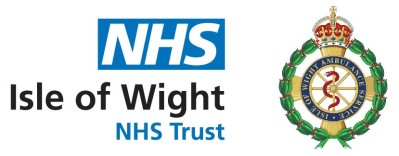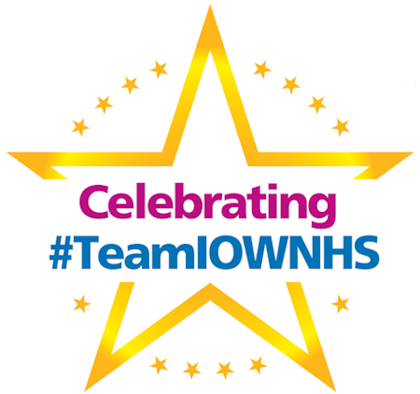Every day more than a million people are treated safely in the NHS. Occasionally, things go wrong, or an unexpected event occurs. These are known as patient safety incidents.
A patient safety incident is any unintended or unexpected incident which could have, or did, lead to harm for one or more patient’s receiving healthcare. These can range from incidents which cause no harm – such as a missed dose of a medicine - to rarer incidents which can have a devasting impact on someone’s life - such as a problem with diagnosing a condition or disease leading to irreversible progression of that condition or disease.
Patient Safety Incidents can also include ‘near misses’ where an issue was spotted prior to an incident occurring. A near miss could be an error on a prescription chart which is spotted by a pharmacist prior to dispensing the medication for example.
In almost all cases, incidents occur due to problems within the systems people work in, and not because individuals meant to cause any harm. In the NHS it is important that we learn lessons from patient safety incidents, so that we can try and prevent them from recurring.
The Patient Safety Incident Response Framework (PSIRF), is the new approach to responding to patient safety incidents that occur within the NHS and replaces the previous Serious Incidents SI Framework 2015. PSIRF is underpinned by modern patient safety science and updates the way that patient safety incidents are responded to and how patient safety investigations are undertaken. The Isle of Wight NHS Trust was one of the first to use PSIRF. The video below explains PSIRF and how it differs from the SI Framework:
Implementing PSIRF requires our organisation to develop a Patient Safety Incident Response Plan PSIRP in agreement with our partners in the Hampshire & Isle of Wight & NHS Clinical Commissioning Group CCG and Healthwatch patient involvement.
The PSIRP supports Isle of Wight NHS Trust to identify our most significant patient safety risks and focus on these risks to ensure they are fully investigated according to Patient Safety Investigation Standards. Read a copy of our current PSIRP.
To ensure our patient safety investigations are objective, fair & transparent, they are always carried out independent of the service and where possible the clinical division within which the incident occurred. For some specific incident types, there will be a requirement for the investigation to independent of the Trust or possibly the NHS itself.
Our PSIRP also describes how we plan to respond to incidents that fall outside the patient safety incident investigation priority areas by using a range of other techniques to generate insight where required.
Reviews and patient safety incident investigations completed under the PSIRF are undertaken to identify underlying system causes and the actions that need to be taken to prevent the issues from recurring. They do not seek to apportion fault or blame.
Simple steps to keep you safe during your hospital stay
You may be feeling anxious about being in hospital but keeping you safe and well is a priority for the staff looking after you. There are also some simple things you can do to help keep yourself safe during your hospital stay, such as asking for help when needed, protecting yourself from slips and falls and helping to prevent blood clots.
The ‘Simple steps to keep you safe during your hospital stay’ video and leaflet provides tips on things you can do to look after your safety during your stay.
Simple steps to keep you safe during your hospital stay leaflet available in multiple languages: NHS England website.
How will I know if a patient safety incident has occurred?
Isle of Wight NHS Trust will always be open and honest about incidents that have occurred. In the NHS, this is known as Duty of Candour. If it is believed that something has gone wrong during your care that has caused you moderate or more severe harm, you will be told about this immediately. You will also receive an apology and the circumstances of the incident will be explained to you.
What if I think something has gone wrong or a patient safety incident has occurred?
Please tell the team caring for you immediately, so they can investigate what happened and provide any immediate treatment that may be required. A family, friend or carer can do this on your behalf if necessary. Once the care team provide the right treatment the incident will be reported and reviewed according to the PSIRP to enable the organisation to learn.
What happens if I have been harmed?
Caring for you will be our priority and staff will take immediate action to ensure appropriate treatment is given and to prevent further harm. We will also ensure other support needs are identified.
The incident that has occurred will be recorded in our incident management system and be reviewed against the PSIRP and responded to accordingly. You will always be given the facts about the incident that occurred, an apology, and the findings from any review that is undertaken. This information will be provided by the Ward/Department/Service Lead where the incident occurred.
What if I am not happy with the information I receive and/or the response that is taken?
Please raise any concerns with the Matron of the service or contact the Patient Advice and Liaison Service PALS so we can work to address any problems or concerns you may have.
What happens if someone has died?
The death of someone, even if expected, can be a very distressing and difficult time for family and loved ones. Dedicated support and information about how we review and investigate the care provided to those who have died, including information about Coroner’s inquest, is available via our information guide for bereaved families and through our bereavement team/service.
What can I expect if I am involved in a Patient Safety Incident Investigation?
As soon as a decision is made to start a Patient Safety Incident Investigation related to an incident that affects you, we will be in touch to let you know. The person that contacts you will be your dedicated point of contact. They will try and find a time and place to talk to you about how you want to be involved and supported in the process. You can of course ask a friend or family member to join for support or to speak on your behalf if you don’t feel able to. We will also do all we can to support you.
Your dedicated contact will provide their details and they, or a designated deputy (who you will be introduced to), will be available Monday to Friday.
We are committed to supporting and involving patients and families to the extent they wish, and in accordance with Patient Safety Investigation Standards.
If you are involved in a Patient Safety Incident Investigation you will receive a copy of these standards and your dedicated contact will be able to discuss them with you if that is something you would find helpful.
During the investigation we will ask you to help in several ways. This includes:
- Telling us about any issues or concerns you have about the care and treatment provided
- Sharing questions you would like answered
- Describing your experience and giving your account of what happened to help us establish the facts about the incident and how it happened
- Reviewing the draft investigation report
- Helping to inform recommendations and action for improvement
- Keeping us up to date with how you are feeling and whether there is more we can do to support you
- Providing feedback about your experience of the Patient Safety Incident Investigation
We will work with you to understand how we can support your involvement in each of these areas, if you are happy to be involved in this way. You may feel you need support from an Independent Advocacy Service, and this will also be discussed with you.
Patient Safety Incident Investigation takes time to complete well. We endeavour to complete all investigations within 2 to 3 months. We will share proposed timeframes with you and keep you updated throughout the investigation process. We can agree in advance how often you would like to be contacted and how.
Once the investigation is complete, we will send you the draft report and arrange a meeting to discuss this with you.
All reports will be anonymised unless you specifically ask us to include your name, or the name of your friend or family member if the investigation relates to an incident that involved them. You can help us to decide how to refer to you, or your friend or family member, if you would prefer the report to be written anonymously.
To support the purpose of learning and improvement and avoid any inappropriate blame staff will remain anonymous in the final patient safety incident investigation report.
Once the report is finished it will be signed off by a member of the Isle of Wight NHS Trust Board. Some actions to reduce future risk may need to begin immediately, however, where the findings from other investigations will help our organisation to understand and tackle similar risks, we will wait until all findings can be considered before developing and implementing a safety improvement plan SIP. This will be shared and discussed with you.
We will continue to monitor improvement plans to determine whether the changes we are making are actively reducing risk and improving patient safety. This will be overseen by Isle of Wight NHS Trust board and Hampshire & Isle of Wight NHS Integrated Care System ICS. We will continue to keep you updated with the progress being made.
At the end of the investigation process we would appreciate your feedback so we can improve the way we support and involve patients and families. Your dedicated contact will provide a feedback questionnaire in a format which is most suitable for you. All family members are welcome to give feedback - more than one questionnaire can be completed if needed. Information will be collected anonymously and used to develop and improve our response to patient safety incidents.



